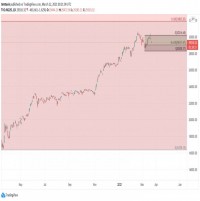|
|
By: Steve Schoener, Chief Technology Officer, Eze Castle Integration
Threats to private equity firms continue to grow both in scope and sophistication, meaning cyber strategies and practices require equally complex and progressive thought. Particularly for firms with limited (or nonexistent) security resources, it can be a daunting task to stay on top of the new and evolving risks at hand. But meticulous attention needs to be employed to mitigate these ongoing threats.
Todayís hackers and cyber criminals are not only targeting IT systems, but humans as well. Attacks vary in target, size and motive, but all pose serious risks to a firmís wellbeing, thus itís vital to be aware of common threat types targeting the private equity community. Threats to be mindful of include:
- Malware/ransomware: Virtual cyber threats impacting firm systems and networks often taking advantage of system flaws, legacy technology and/or insufficient cyber protections
Social engineering: Deceptive scams, e.g. phishing, intended to manipulate users into divulging confidential data or leaving open a gateway to said information
- Insider threats: Unintentional or malicious activity on the part of a firmís employee resulting in leaked, stolen or compromised information
Unfortunately, once hackers gain access to your network or data, there is a lot that they can do to wreak havoc for private equity firms. In fact, with their roguish hands on the right information, the consequences can be downright destructive for a firmís business operations and integrity.
- With stolen passwords and login credentials, hackers can gain access to company systems and networks Ė not an insignificant feat.
- Inside your email, a hacker can access, send and delete communications at will, potentially intercepting company sensitive material, financial data or personal details they can use to further infiltrate networks.
- Hackers can decipher corporate hierarchies and send phishing emails to CFOs, for example, requesting fund transfers to provided bank account numbers.
- A stolen or shared password could also unlock access to a firmís CRM or accounting system, which may contain customer and potential customer information (company and personal), financials, investor analysis, sales forecasting data, etc.
- With their hands on deal flow or portfolio acquisition information, thereís a chance hackers could disrupt M&As or deal agreements or leak company material in advance of confidential negotiations.
To gain a comprehensive understanding of your security posture, private equity firms should conduct a thorough risk assessment on a regular basis. Risk assessments can take many forms (technical, regulatory, etc.) and should be conducted broadly to ultimately provide firms with a roadmap that identifies risks and provides guidance on future security initiatives. What should those initiatives include?
Private equity firms may consider exploring industry frameworks to design comprehensive cyber programs. For example, the National Institute of Standards in Technology (NIST), focuses on building layers of security across an organization. Their primary layers Ė Identify, Protect, Detect, Respond and Recover Ė assist firms in mapping specific strategies and safeguards to ensure a comprehensive security program is designed to mitigate risk. Following are a few examples of strategies and protections firms can employ to thwart cyber-attacks:
IDENTIFY: Risk assessments, network inventory audits
PROTECT: Access control, security awareness training, email and endpoint security, patch management, phishing simulations, encryption
DETECT: Intrusion detection/prevention, vulnerability assessments
RESPOND: Incident response, remediation
RECOVER: Backup services, disaster recovery
Mitigating Third Party Risk
Many private equity firms simply donít have the necessary technical resources in-house to manage technology and security Ė hence, outsourcing. Outsourcing all or portions of technology and cybersecurity responsibilities to a managed service provider provides many advantages. And while relying outsourcing is a welcome relief for many firms, it does not absolve them of their responsibility to manage their own firmís risk. In fact, on top of managing your own risk, outsourcing means also managing the risk associated with your vendors and service providers.
A few key reminders on vendor due diligence and risk management:
- Understand who your outsourced providers are, what functions they provide and what data/systems they have access to
- Consider sending requests for proposals (RFPs) and DDQ documentation requests to any third parties you are evaluating and review engaged third parties annually
- Continuously evaluate and monitor to ensure all parties are achieving their end goals and meeting expectations
- Understand Service Level Agreements (SLAs), contractual loopholes and any third party operational practices that may affect migration plans or your firmís security standing in the short and long-term
|





 RSS
RSS










